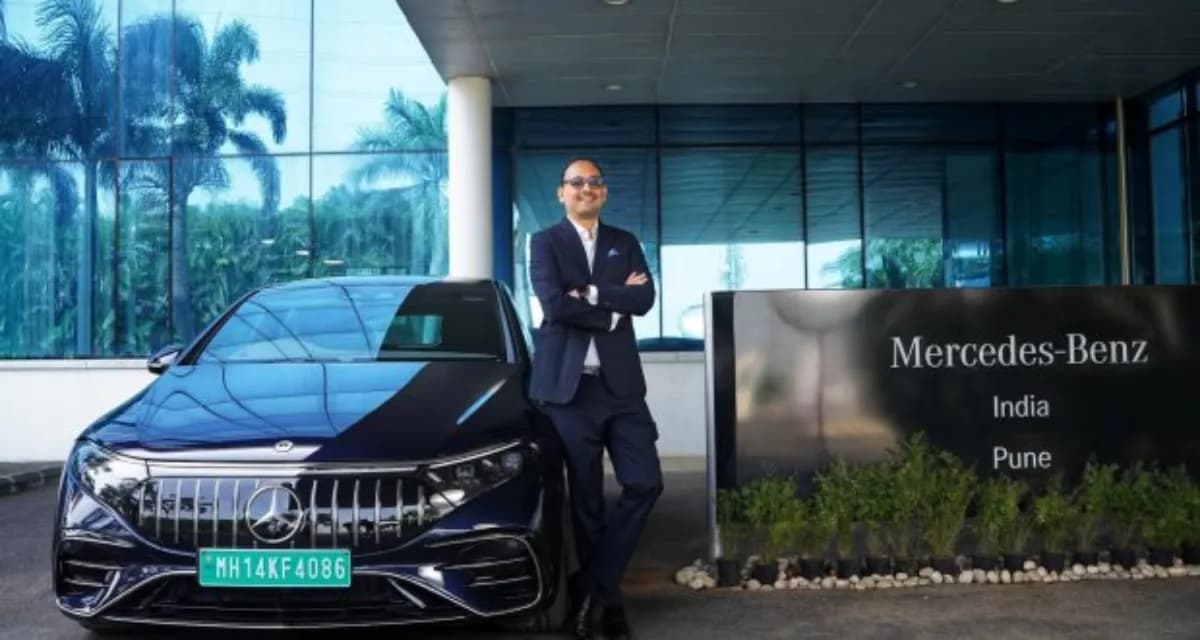Mercedes India's CEO, Santosh Iyer, in a candid statement, expressed frustration with India's fluctuating EV taxation policies. Speaking at a recent event, Iyer emphasized how inconsistent taxes across states are complicating the growth of electric vehicles in the country. As different regions either withdraw or modify EV subsidies and taxes, buyers are left confused about the real costs of owning an electric car, leading to hesitation and stalled demand.
Taxing the EV Market
The Indian electric vehicle market is young but growing. However, the lack of uniform tax policies makes it difficult for manufacturers and customers to plan. Iyer pointed out how some states, such as Karnataka and Telangana, have either introduced or withdrawn road tax waivers. This inconsistency raises EV prices, particularly in the luxury segment, making consumers pause their buying decisions.
For instance, Telangana now charges up to 15% of the vehicle cost as tax, replacing earlier incentives. Karnataka has introduced a 10% lifetime tax for EVs above ₹25 lakh. Delhi has also followed suit, removing road tax waivers and imposing a 10% road tax on electric vehicles. Iyer criticized these changes, saying they create a distorted market, as each state now has different rules, making it challenging to evaluate EV performance and demand across India.
EV Market is Growing, But Slowly
Despite the challenges, Mercedes India's EV sales are still showing growth. In 2023, electric models made up 2.5% of their total sales. By 2024, this number had increased to 6% between January and September. Iyer attributed this to competitive pricing strategies and the localization of high-end EVs like the Mercedes EQS.
Localization, he explained, helps bring down the cost of luxury electric cars, making them more attractive to Indian consumers. When Mercedes localized the EQS, sales immediately surged. This demonstrates that customers are willing to invest in EVs when prices are competitive and stable.
Stability Needed for Long-Term EV Growth
Iyer believes that for India to achieve its electric vehicle goals, the government needs to set a consistent and long-term taxation roadmap. He advocates for stable EV policies over the next three to four years, allowing the market to stabilize. In his view, it’s too soon to change taxes on EVs when the market has barely matured. According to Iyer, stable policies could help push EV penetration to 25-30% of total vehicle sales, after which the government could reassess taxes and subsidies.
Luxury EVs like Mercedes don't rely heavily on running cost savings to attract customers. Instead, it's the upfront price that matters most. Buyers are hesitant when prices are unpredictable due to changing taxes. This uncertainty causes many to delay purchasing decisions, waiting for a time when prices might be more stable and affordable.
To sum up, As India's EV market continues to evolve, the challenge remains in balancing growth with policy stability. Mercedes India's CEO has highlighted a key issue — inconsistent taxes. For India to become a major player in the global EV space, a clearer, long-term plan for electric vehicle taxation is needed. This would provide both manufacturers and consumers with the confidence to invest in the future of clean, electric transportation.
Also Read:
